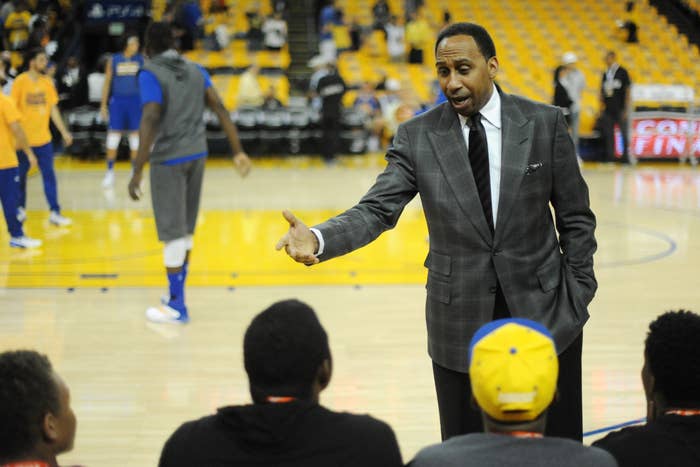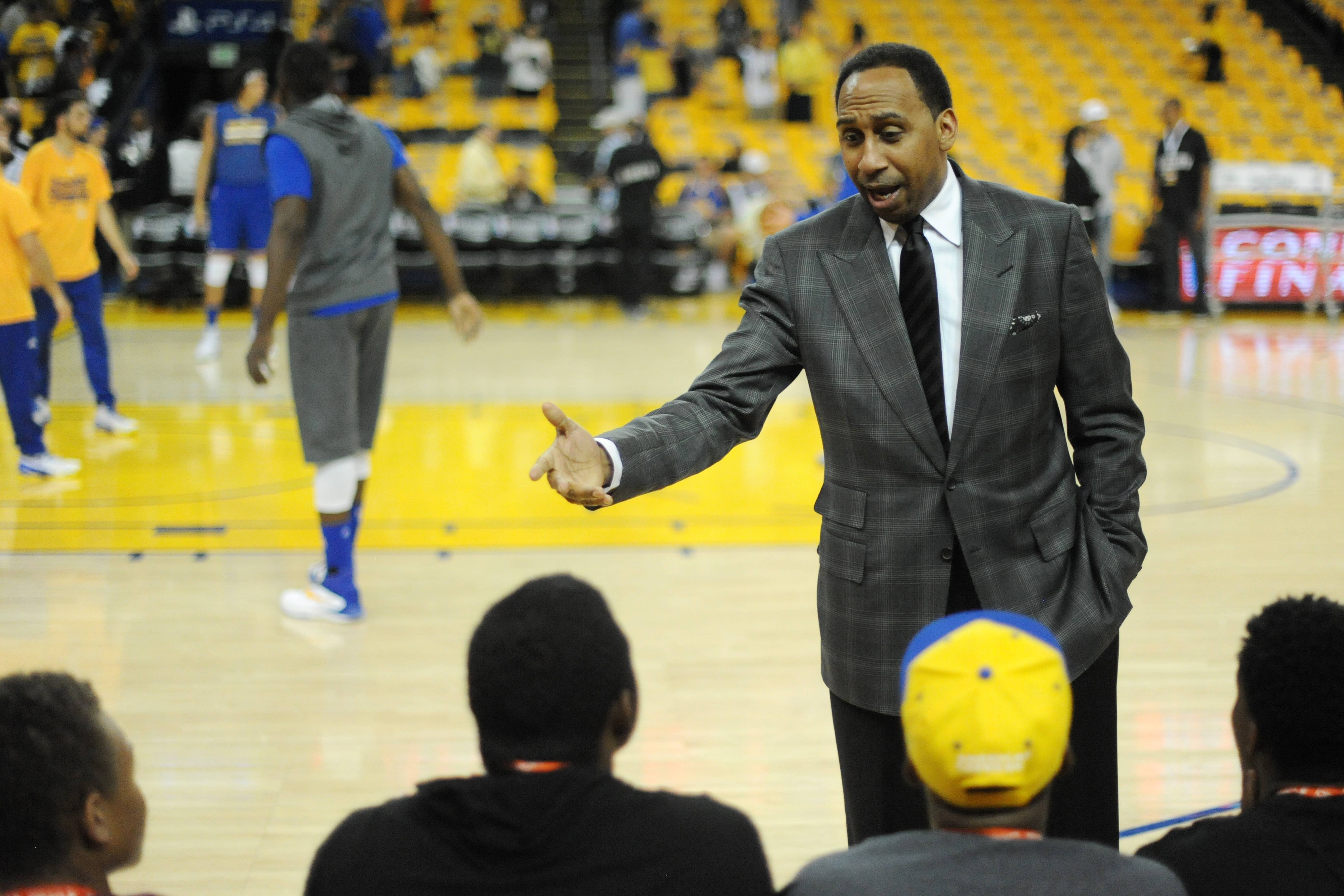
You know what ESPN stands for, right?
Entertainment and Sports Programming Network.
Sports come second. Entertainment comes first. And once you understand that—that ESPN has been operating that way for decades now, that it values superstars over substance, glitter over the nitty-gritty, hot takes over honest reasoning—it makes what happened up in Bristol earlier this week a whole lot more sensible. So save any and all vitriol directed toward the Worldwide Leader in Sports or any of its high-profile talking heads who survived the purge, because the only thing lamer than blaming someone like Stephen A. Smith for the ills of the company is blaming it on politics.
Spare Stephen A. Smith your hot takes about how one talking head is symbolic and somehow responsible for the Bristol Bloodbath. There are complicated, yet overly simplistic, reasons that a lot of popular reporters, writers, producers, and personalities lost their jobs this week.
If you somehow missed it, Smith, the bombastic star of ESPN’s highly rated and wholly successful First Take, got a lot of shit when many of his revered colleagues—the ones who dig up the actual news and analysis that he and Max Kellerman yell about every morning—were handed pink slips. Some journalists, like Jeff Pearlman, were particularly pointed in their criticism of Stephen A. (Full disclosure: I did work on Smith’s old show Quite Frankly With Stephen A. Smith in 2006.)
But the reason for ESPN’s “decline”—despite the fact the company reportedly is still wildly profitable—is nothing new. Like many other older media giants, they’ve lost millions of subscribers over the years thanks to cord-cutters, turning the business model that made it a behemoth into a liability.
And you know how you try to hang onto subscribers? Spend money on big-ticket TV rights that (in theory) draw in eyeballs like Monday Night Football or the College Football Playoff. You also do it by having provocative talking heads debate topics that appeal to the lowest common denominator on a daily basis instead of making costly investments in the areas like news gathering and reporting. It’s the same thing going on at many, if not most, other media outlets.
That’s why for the better part of what feels like a decade now (if not more), ESPN has been unabashed in its breathless coverage of asinine things like Tim Tebow’s pursuit of his baseball career or Brett Favre flirting with retirement and then a return to the NFL approximately 7,454 times. ESPN’s going to keep doing that because more people will watch that, click on that, consume some kind of media about that than will read some college basketball coverage or beat reporting that’s costly and drains numerous resources. Why keep the revered Baseball Tonight, which for all intents and purposes no longer exists on ESPN (RIP), when people consume baseball highlights on their Instagram timelines?
I can’t pinpoint the time when ESPN ditched its philosophy that largely leaned toward broadcasting, reporting, and informing for debating. But entertaining viewers by featuring the kinds of personalities that people love or love to hate is better business than the other options as they continue to weather this subscriber crisis.
So spare Stephen A. Smith your hot takes about how one talking head is symbolic and somehow responsible for the Bristol Bloodbath. There are complicated, yet overly simplistic, reasons that a lot of popular reporters, writers, producers, and personalities lost their jobs this week. That sucks—because even if you aren’t a big fan of what ESPN does, good people worked up there and, you have to objectively admit, they produced some really cool things from time to time. All in the name of, ironically, entertaining us.

